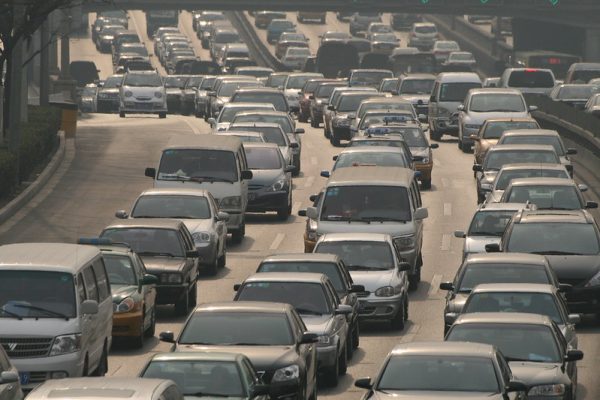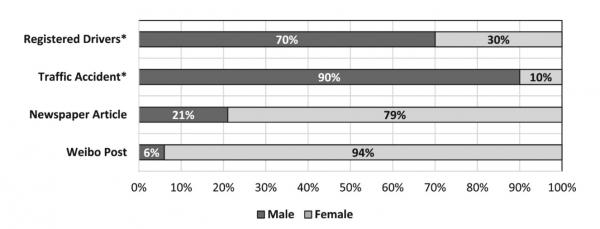
We know that underrepresentation in media contributes to ideas that women are less competent and less likely to be experts. But can overrepresentation also perpetuate gender stereotypes? And do gender stereotypes spread differently through social media than traditional media? In a recent study, Muyang Li and Zhifan Luo analyzed social media and newspaper reports of traffic accidents in China to examine whether media overrepresentation drives the idea that women are worse drivers than men.
The study collected 97,120 posts from Weibo, China’s largest social media site, and 11,290 newspaper articles from January 2010 to November 2018. Using computer-assisted text analysis, the authors identified articles’ topics and gender mentions.
Although women are underrepresented in actual traffic accidents — they are 30% of registered drivers in China and the drivers in only 10% of traffic accidents — both newspaper and social media posts were more likely to identify a driver as female. Seventy-nine percent of newspaper articles that mentioned a driver’s gender identified female drivers, while 94% of Weibo posts did the same.
Gender stereotypes were overall less explicit in newspaper articles. Although newspapers were more likely to include the gender of the driver if they were female, the newspapers rarely blamed specific accidents on inherent bad driving. Weibo posts, on the other hand, often included direct discussions of the stereotype that women are worse drivers. Weibo posts mentioning female drivers were also more likely to be reposted than those mentioning male drivers, and police department Weibo accounts were the most likely to mention female drivers.
The researchers dug deeper on a selection of Weibo posts that discussed sexism. Through a qualitative analysis they found that these Weibo posts included a mix of sexist and feminist arguments. Some of these posts argued that women were worse drivers or reiterated gender stereotypes about female drivers, but a substantial number used Weibo to call out sexism and argue that women are no worse at driving than men. In some ways, social media is still a toxic cesspool, but it’s also a place where people can talk back.

